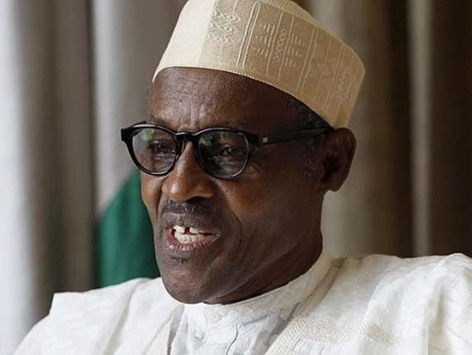Nigeria’s President Muhammadu Buhari yesterday faced urgent calls to stop security spiralling out of control in the oil-rich south, after militants claimed two new attacks against key pipelines.
The Niger Delta Avengers, blamed for a wave of bombings in the region since the start of this year, claimed the attacks on infrastructure operated by Shell and Eni’s Nigerian
subsidiaries.
“At 3:00am today (0200 GMT Friday), @NDAvengers blow up the SPDC Forcados 48” export line,” it said on Twitter, referring to the Shell Petroleum Development Company.
The group said the attack was carried out because Shell had refused to heed earlier warnings not to repair the pipeline, which was damaged in February and is still not back on stream.
Half an hour later, a “strike team” blew up the Brass to Tebidaba crude oil line in Bayelsa state operated by Agip, the subsidiary of Italy’s Eni, the NDA said.
The militants’ purported spokesman, Mudoch Agbinibo, warned the company “not to commence repair works on any of the blown pipelines in Bayelsa. We will make you regret it”.
Shell later confirmed “signs of a leak” on the Forcados pipeline after the reported attack but said it had “yet to fully evaluate the potential impact and damage”.
The company operates the line as part of a joint-venture with the state-run oil firm the Nigerian National Petroleum Corporation (NNPC), French group Total’s local subsidiary and Agip.
Desmond Agu, commandant of the Nigerian Security and Civil Defence Corps in Bayelsa, confirmed the second attack and said the pipeline had been shut down.
“We have dispatched our men and we have intensified patrols in the area. We are working round the clock to protect critical infrastructure in Bayelsa,” he added.
Yesterday’s attacks follow two claimed bombings of Agip pipelines elsewhere in Bayelsa state on Thursday and the sabotage on Tuesday of two oil wells operated by the US group
Chevron.
Six people - four soldiers and two personnel - were also killed on Wednesday in neighbouring Delta state when suspected militants disguised as commuters opened fire on an NNPC boat.
The NDA denied any involvement but it has vowed to bring oil production to a standstill in Nigeria, which normally depends on crude exports for 70% of government revenue.
The attacks have already had an impact, with output slashed to 1.4mn barrels per day, well down on the budgeted 2.2mn bpd this year.
That has exacerbated a sharp decline in oil revenue due to the global fall in crude prices since mid-2014, which has left Nigeria’s government cash-strapped and has stalled growth.
Shortage of natural gas deliveries has hit electricity production and left pumping stations unable to supply water to much of megacity Lagos, which is home to some 20mn people.
The NDA are believed to have sympathy for a former oil rebel leader who commanded militants in the region in the 2000s and is now wanted on money laundering and corruption charges.
The Nigerian military, which has slammed the NDA as “economic terrorists”, has deployed gunboats and fighter jets to the creeks and swamps of the delta in search of the militants.
Buhari last week ordered enhanced security in the delta, adding: “We have to be very serious with the situation... because it threatens the national economy.”
But Eric Omare, from the Ijaw Youth Council rights group, said more needed to be done as the situation was “rapidly deteriorating and getting out of control”.
Buhari should “urgently and personally take charge of the management of the process to return peace and normalcy to the region”.
Talks were required between both sides to restore peace, he said, calling on the NDA and other militant groups to stop their campaign of violence.
“The events that are happening in the region pose serious economic, environmental and security challenges to the entire nation,” he said.

Muhammadu Buhari
